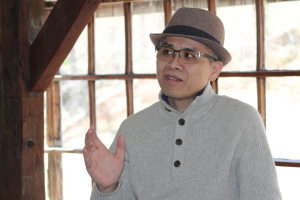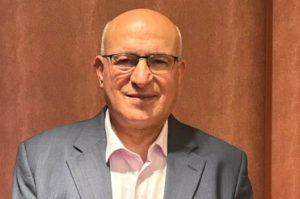Interfaith Leaders Fast to Protest 'Torture' Prisoners Endure in Solitary Confinement
Interfaith leaders participated in a fast last week to protest the U.S.'s continued practice of solitary confinement of prisoners, arguing that the practice is inhumane and often results in mental illness.
The fast accompanied Congress's first-ever hearing on the harmful effects of solitary confinement following a lawsuit in California. Pat Nolan of the Prison Fellowship/Justice Fellowship ministries, which works on reforming the criminal justice system, testified before the Senate Judiciary Committee.
Prison Fellowship chief of staff Dave Louden, speaking during a press conference after the Congressional hearing, said solitary confinement only harms prison inmates.
"These men that are in solitary confinement are deemed ... to be too dangerous for prison. Yet on their release, many will come straight out of solitary confinement, through the gates of the prison, and into our communities without any prior preparation," he said, according to The Washington Post.
The Prison Fellowship/Justice Fellowship, joined by leaders from the Muslim, Christian, and Jewish faiths, partnered with the National Religious Campaign Against Torture (NRCAT) for a 23-hour fast during June 18 and 19. The 23-hour fast was intended to represent the number of hours a prisoner spends in solitary confinement daily.
The hearing, which occurred on June 19, was held by the Senate Subcommittee on the Constitution, Civil Rights and Human Rights to address the economic and moral issues of solitary confinement.
Opponents of solitary confinement argue that the severe punishment creates psychologically damaging effects for prisoners, as the prisoners are often kept in a small, solitary spaces with no natural sunlight, limited food, and no human contact for several weeks or even years.
The committee hearing involved testimonies from both supporters and opponents of solitary confinement.
Anthony Graves, who was exonerated in Texas in 2010 after spending 12 years in solitary confinement for multiple murders committed in 1992, described the practice as "inhumane and by its design is driving men insane" at the panel, according to the Boston Herald.
The Congressional review comes after the Center for Constitutional Rights filed a lawsuit against the state of California earlier this month.
The lawsuit is regarding the alleged inhumane treatment of 300 inmates suspected of being gang-affiliated. The inmates have been held in solitary confinement at the Pelican Bay State Prison's Security Housing Unit for over a decade.
Craig Haney, a psychology professor at UC Santa Cruz, told The Los Angeles Times that one-third of prisoners in solitary confinement suffer from mental illness afterward, and about 50 percent of prison suicides occur while a prisoner is in solitary confinement.




























